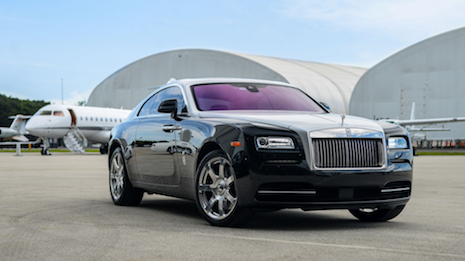- About
- Subscribe Now
- New York,
March 8, 2018

 Rolls Royce is one of the many luxury brands who lacks investment in digital. Image credit: Rolls Royce.
Rolls Royce is one of the many luxury brands who lacks investment in digital. Image credit: Rolls Royce.
Luxury automakers should be leading the way in innovation, especially with digital, but a new L2 report shows that mass-market auto brands are driving laps around high-end manufacturers.
L2's Digital IQ Index for the auto industry revealed that Rolls-Royce, Land Rover and Aston Martin are among the few automakers whose mobile sites lack any investment, with load times more than five seconds long. Mercedes was the only luxury brand listed within the top five rankings for digital offerings.
"Non-luxury brands have made clear investments in digital to stay top-of-mind of the evolving consumers," said Cody Stack, senior research associate at L2. "Winning brands optimize their discovery and sales process for mobile by cutting extraneous features that clutter a page, while at the same time layering on mobile-specific features like pinch-to-zoom."
Digital investments
Rolls-Royce and Bugatti are among the worst auto brands in terms of digital investment, ranked at 41 and 42 out of 43, respectively.
The auto industry is expected to see a decline of roughly 5 percent by the next year. Automotive manufacturers therefore need to focus heavily on fine tuning their strategies.
Chart on auto brands' mobile performance. Image credit: L2
Brands that link online vehicle pages to local dealerships have grown by 20 percent over the past year. Manufacturers are also sharing online consumer data with local dealerships more so than ever, with a 36 percent increase.
Mass-market brands are also threatening luxury automakers in China, as brands such as Ford leverage digital initiatives there to gain share in the market. Ford recently partnered with Alibaba to sell vehicles on the Chinese ecommerce giant's platforms.
While Porsche's contemporaries in luxury are having trouble providing the necessary digital initiatives, the German luxury brand has one of the lowest load times out of any automaker. With load times less than two seconds, its mobile traffic is up as well as its offerings.
Porsche's mobile Web site shows optimum speed.
Tesla and Audi are also close to Porsche in terms of mobile sophistication and speed.
While luxury brands are losing in terms of mobile and digital offerings on their own platforms, they far outweigh mass brands on social media. This is likely due to the “love” they elicit from fans.
Lamborghini, Porsche, Audi and Aston Martin are each within the top six brands who have the most interaction share on both Facebook and Instagram. Lamborghini saw the most interaction on Instagram, with a 14 percent share of auto interactions.
Ferrari saw the most engagement on Facebook with a 21 percent share.
L2 is discovering that Instagram's influence is growing over Facebook.
Automakers doubled the number of Instagram interactions between Q4 2016 and Q4 2017. They also saw four times the number of interactions on Instagram versus Facebook.
Additional insight
While Aston Martin may lack in digital offerings, the brand is still seeing an upward shift.
After a decade of seeing no profits, Brexit has helped Aston Martin become the fastest growing automotive brand, according to Brand Finance.
Weekened currency in the United Kingdom, where Aston Martin is based, has supported the automaker's $3.6 billion growth over the past year, reported in Brand Finance Auto & Tyres 2018 report. While Aston Martin was the fastest growing brand, Mercedes-Benz has surpassed BMW and Toyota as the most valuable manufacturer in the automotive sector with a year-over-year growth of 24 percent (see more).
As automakers continue to invest in electric mobility initiatives, the electric vehicle market is likely see a paramount jump by the year 2025.
According to a report from Frost & Sullivan, the electric vehicle (EV) industry is expected to see a 28.3 percent annual compound growth rate, with a jump from 130,000 units to 1.8 million in seven years. Plug-in hybrids will lead the market, with a 59.8 percent share, but complete battery-powered cars will continue to gain traction (see more).
"Estimates point to a slowdown of the auto industry by 2019," said Grant Torres, director of emerging sectors research at L2. "Combine this with developments in big tech and the race to create the first driverless car and auto brands are faced with even more uncertainty of what the future holds."
Share your thoughts. Click here